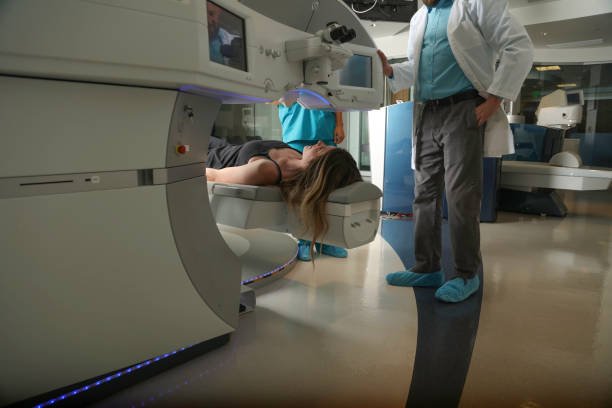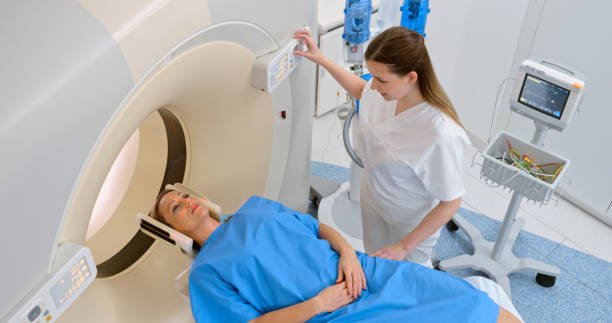
Department of Urology
Urology
About
The urology department of JIET hospital is a medical specialty that focuses on the diagnosis and treatment of conditions and diseases affecting the male and female urinary tract system and the male reproductive organs. This includes the kidneys, bladder, ureters, urethra, prostate gland, and genitals.
Urologists at JIET Hospital are trained medical professionals who specialize in treating disorders of the urinary tract system and male reproductive organs. They provide both surgical and non-surgical treatments for a wide range of conditions, including urinary tract infections, bladder and kidney stones, prostate problems, urinary incontinence, infertility, and cancers of the urinary tract system and male reproductive organs.
The urology department of JIET Hospital typically has state-of-the-art diagnostic and treatment technologies to provide the highest quality care to patients.
Patients can be referred to the urology department by their primary care physician or may seek treatment directly from a urologist. The urology department of JIET Hospital may work closely with other departments within the hospital, such as oncology, radiology, and pathology, to provide a comprehensive and multidisciplinary approach to patient care.Key procedures (IPD)
Treats male/female urinary and male reproductive disorders.Uses advanced tech for urinary stones.Manages male sexual dysfunctions.Detects early prostatic malignancies.Handles prostatic diseases.Performs cystoscopies.Removes stones endoscopically.Treats urinary infections.Conducts ureteroscopies.Performs Percutaneous Nephro Lithotomy(PCNL).
Key Services
Urethroplasty: Surgery to repair urinary tract obstructions, enhancing urine flow.Radical Cystectomy: Total removal of the bladder due to severe disease.Incontinence Procedures: Surgeries correcting involuntary urinary leakage.Nephrectomy/Partial Nephrectomy: Full or partial kidney removal for disease management.
Key Equipment & Infrastructure
Cutting-edge endoscopes, advanced accessories, revolutionizing diagnostic, and therapeutic procedures.Lasers: Precision tools, versatile applications in medicine, industry, and research.
In-House Investigations
Uroflowmetry: Evaluates urinary tract, diagnosing related diseases.X-Rays: Detect bone fractures, infections, and tumors.64-slice CT scanner: Enables detailed images for precise diagnosis.1.5 tesla MRI scanner: Provides clear pictures of soft tissues and organs.Kidney Biopsy: Analyzes kidney tissue, identifying diseases.Pathology & Radiology services: Crucial for diagnosis and tracking disease progression.
FAQs
-
Urology is a branch of medicine that focuses on diseases of the urinary tract in both males and females and the disorders of the male reproductive system. Urologists are trained to diagnose, treat, and manage these conditions.
-
While both deal with kidney health, urologists focus on surgical treatments of diseases of the urinary tract and male reproductive organs, while nephrologists primarily deal with the medical management of kidney diseases and conditions.
-
Common reasons to see a urologist include frequent or painful urination, blood in the urine, kidney stones, male infertility, urinary incontinence, erectile dysfunction, and any growths or pain in the genital region.
-
Yes, while many uncomplicated UTIs are treated by primary care providers, recurrent or complicated UTIs might be referred to a urologist for further evaluation and management.
Blog
Modern medical advances have made it easier than ever to find cancers early, but one thing hasn't changed: men sometimes find out about their cancers too late. A lot of men either ignore early signs, think they're not serious, or put off going to the doctor because they're busy or don't want to. Unfortunately, these unnoticed symptoms could sometimes be signs of dangerous diseases that are slowly growing in the body. Men can begin therapy at the best time by being aware of the early warning signs
Chemotherapy is one of the best ways to treat cancer, but it can also make you feel sick, give you mouth sores, make you tired, and change your taste. During this time, your body needs more nutrients to stay strong, keep your immune system strong, and heal faster.
Vitamin C is one of the most important nutrients for the human body because it helps cells repair themselves, boosts the immune system, and speeds up healing. But high-dose vitamin C has also gotten a lot of attention over time for another reason: it might be able to kill or weaken cancer cells. A lot of people want to know how it works and if it's safe. When you get cancer treatment, knowing the facts will help you make smart decisions.
Your body needs a lot of nutrition while you are getting cancer treatment, but one of the most common side effects is loss of appetite. Radiation, chemotherapy, drugs, stress, and changes in the digestive system can all make you less hungry.
Completing cancer therapy is a significant event. It is a moment of relief, pride, and hope. However, for many cancer survivors, the road continues after treatment is finished. Emotional healing takes time, and feeling nervous, overwhelmed, or uncertain about the future is common.Like the body, the mind requires support, comfort, and care after cancer.
Chemotherapy uses drugs to kill cancer cells throughout the body, while radiation therapy uses targeted high-energy rays to destroy cancer cells in a specific area. Chemotherapy affects the entire system; radiation therapy focuses on localized treatment.
The Oncology Department at JIET Hospital specializes in comprehensive cancer care, offering advanced diagnostics, personalized treatment plans, chemotherapy, radiation therapy, and supportive services. Our expert team is dedicated to improving patient outcomes through compassionate, state-of-the-art medical care.
JIET Hospital’s Oncology Department offers advanced cancer care with modern technology, expert oncologists, and compassionate support—ensuring holistic treatment, early detection, and personalized therapy for every patient’s journey.
ऑन्कोलॉजी कैंसर की पहचान और इलाज की विशेषज्ञ शाखा है, जिसमें कीमोथेरेपी, रेडिएशन और सर्जरी शामिल हैं। जीत मेडिकल कॉलेज, जोधपुर में कैंसर का संपूर्ण इलाज आरजीएचएस योजना के तहत सुलभ और विशेषज्ञ देखरेख में उपलब्ध है।
Radiation therapy, also known as radiotherapy, is a crucial treatment method in the fight against cancer. It employs high doses of radiation to kill cancer cells and shrink tumors.
पेट स्कैन (PET Scan) या पॉज़िट्रॉन एमिशन टोमोग्राफी एक उन्नत चिकित्सा इमेजिंग तकनीक है, जिसका उपयोग मुख्य रूप से कैंसर, हृदय रोगों और मस्तिष्क विकारों का निदान करने के लिए किया जाता है।
Cancer is a disease whose treatment is costly for the commoner. Mukhyamantri Chiranjeevi Yojana aims to provide free and high-quality health services to the poor and deprived sections of the state.
कैंसर एक ऐसी बीमारी है जिसका इलाज आम आदमी के लिए बहुत महंगा पड़ता है। मुख्यमंत्री चिरंजीवी योजना का उद्देश्य राज्य के गरीब और वंचित वर्ग के लोगों को मुफ्त और उच्च गुणवत्ता वाले स्वास्थ्य सेवाएं प्रदान करना है।
Have you ever wondered how the world of medical technology treats one of the most complex and intricate organs in our body? Welcome to the fascinating realm of radiation therapy for brain tumors!
When we talk about battling gastrointestinal (GI) cancers, radiation therapy often crops up in conversation. Let's be honest, anything involving the word "radiation" might sound a bit sci-fi
Lung cancer remains a significant global health challenge, but advancements in treatments like radiation therapy offer renewed hope.
Radiation therapy, or radiotherapy, is a standard treatment for breast cancer. This therapy uses high-energy particles or waves, such as X-rays, gamma rays, electron beams, or protons, to destroy or damage cancer cells.
Integrative medicine and radiation therapy together provide a holistic, comprehensive, and patient-centered approach to healthcare, focusing on the individual's physical, emotional, and social aspects.
Radiation therapy is a standard treatment for several types of cancer. It uses high-energy particles or waves, such as x-rays or gamma rays, to destroy or damage cancer cells.
Radiation therapy is a cancer treatment that uses high-energy beams to kill cancer cells. It is a very effective treatment, but it can also have side effects.
Cancer is a disease that can affect anyone, regardless of age, gender, or ethnicity. It occurs when abnormal cells in the body begin to grow uncontrollably, forming tumors
Prostate cancer is a common type of cancer that affects men, especially those over the age of 50.
Cancer surgery plays a crucial role in diagnosing, staging, and treatment of various types of cancer. At JIET Hospital in Jodhpur, Rajasthan, we are committed to providing cutting-edge surgical.
There are millions of people on the planet who are afflicted by the terrible disease of cancer. The good news is that medical technology has advanced,
Patients with cancer frequently choose radiation therapy as a kind of treatment. At JIET Hospital, we understand that every patient's
Head and neck cancers are a group of cancers that occur in the tissues and organs of the head and neck, including the mouth,
Radiation therapy is one of the most effective treatments for cancer. It uses high-energy radiation to target and destroy
Radiation therapy is an essential and effective treatment for cancer. It uses high-energy radiation to destroy cancer cells and shrink tumors. However.
Skin cancer ranks as one of the most widespread forms of cancer across the globe. Timely diagnosis and intervention are vital in preventing its spread





























